Khaplu, GILGIT-BALTISTAN: In villages across Pakistan’s picturesque northern Gilgit-Baltistan region, the task of cleaning water channels and reservoirs has for centuries been a communal effort and part of a drive known as “Rkong La wa.”
In Khaplu, the headquarter of Ghanche district of Gilgit-Baltistan and home to almost 24,000 people, men gathered this month, surrounded by lofty mountains, to clean a reservoir. It was one of up to three such “Rkong La wa” cleaning campaigns that will take this year, with one person from each family nominated to take part, making the exercise a truly collective effort.
“I have been participating in this drive since my childhood,” Ghulam Hussain, 52, a participant of the drive in Khaplu Valley, told Arab News last week.
“Such types of drive take place two or three times every year and it’s our duty to participate,” he added. “If we don’t come for the drive, we have to pay a fine … but we respect the rules and regulations set by our ancestors.”
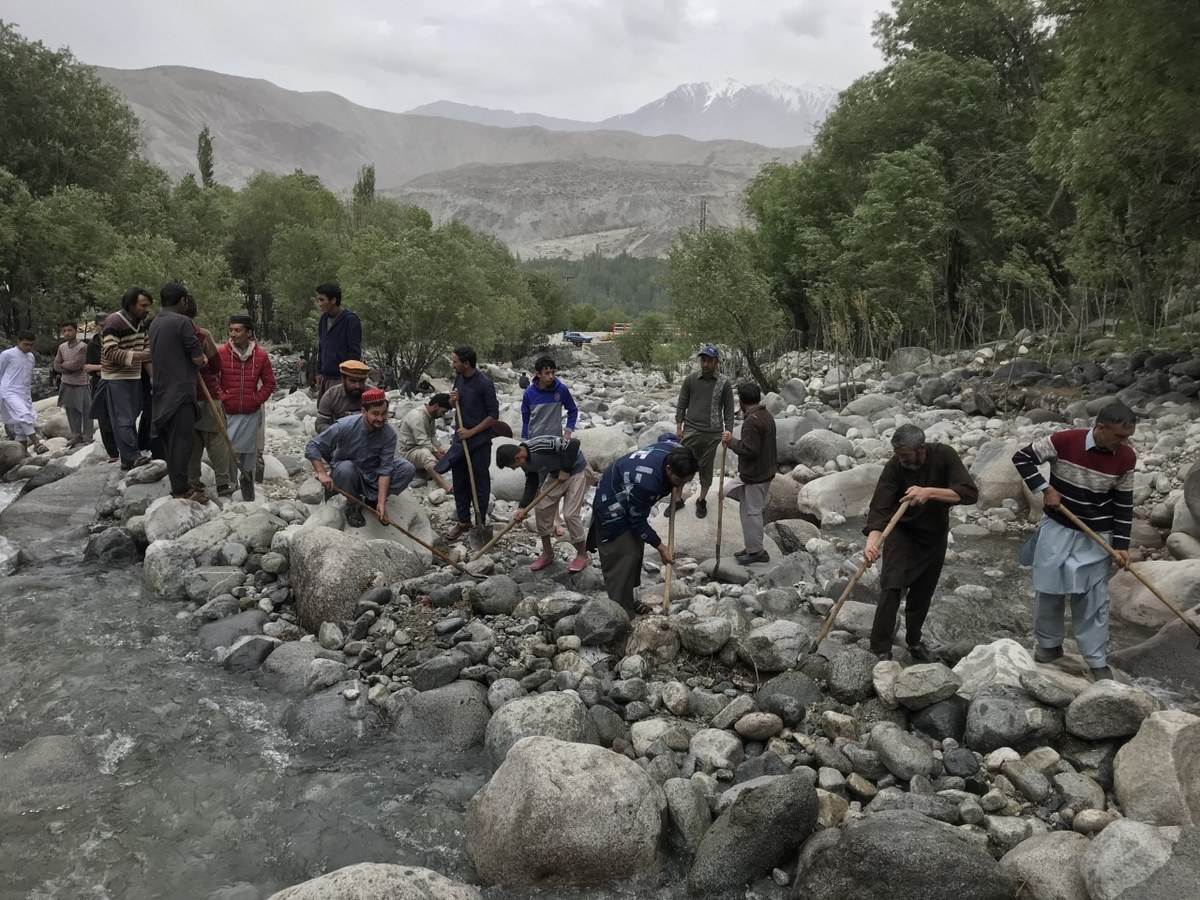
Villagers clean a water channel in Khaplu Valley of Gilgit-Baltistan, Pakistan, on May 7, 2022 (AN Photo)
The fine, which decades ago used to be around two rupees ($0.010), is now over Rs1,000 ($5.19), Hussain said.
The cultivation season in the region begins after February 25 every year, he explained.
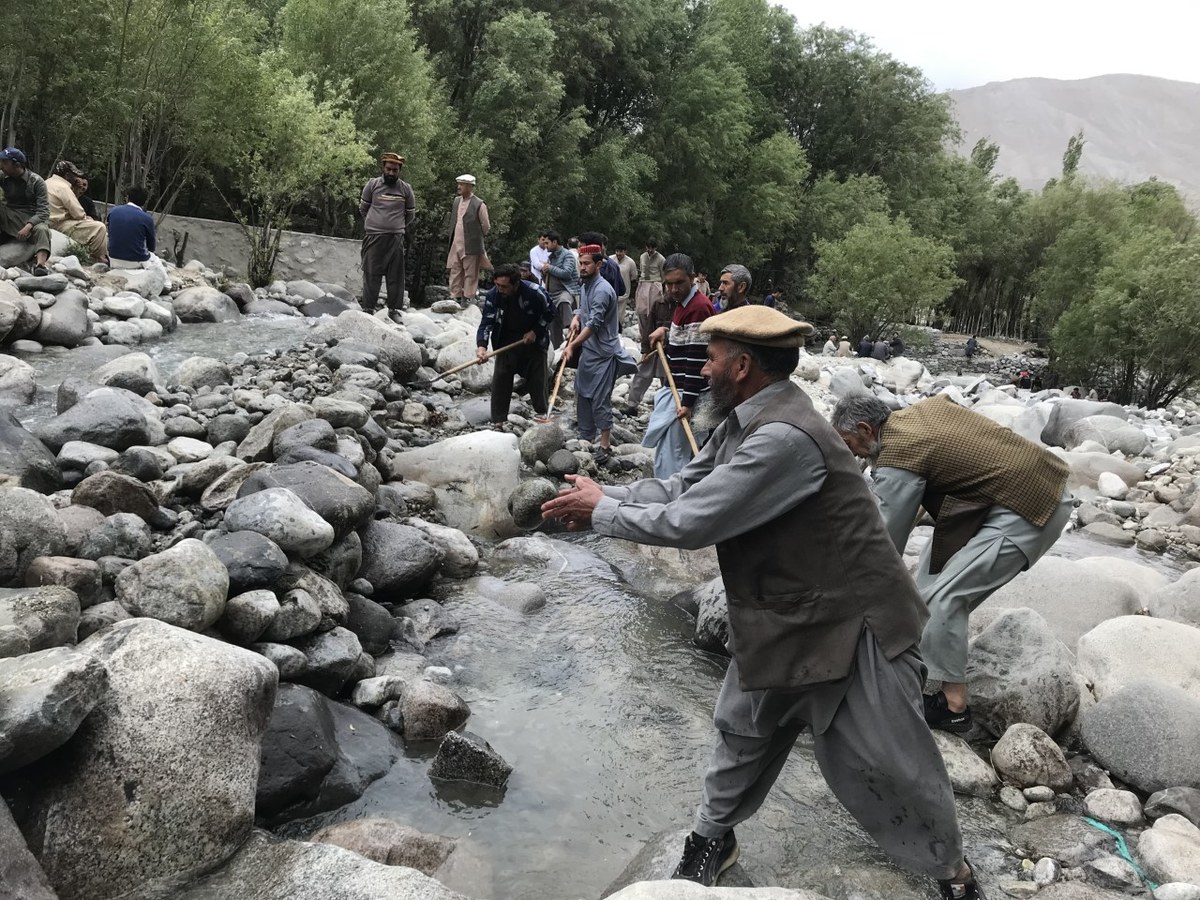
Villagers clean a water channel in Khaplu Valley of Gilgit-Baltistan, Pakistan, on May 7, 2022 (AN Photo)
“And from February 25 to May till the melting of glaciers, we depend on the water of springs and fountains for irrigation,” he said. “When the glaciers start to melt, then the shortage of water ends. And then every year, we have to take part in this drive and people come out with shovels.”
Hajji Muhammad Ishaq, a 45-year-old Kuwait-based worker, said he was participating in the drive after 10 years as it coincided with his visit to Pakistan.
“The way of working is still the same, the difference I noticed is that the amount of fine has increased,” he said, chuckling.
A 14-member committee looks after all affairs related to water and irrigation, Jamil Hussain, a member of the controlling committee said.
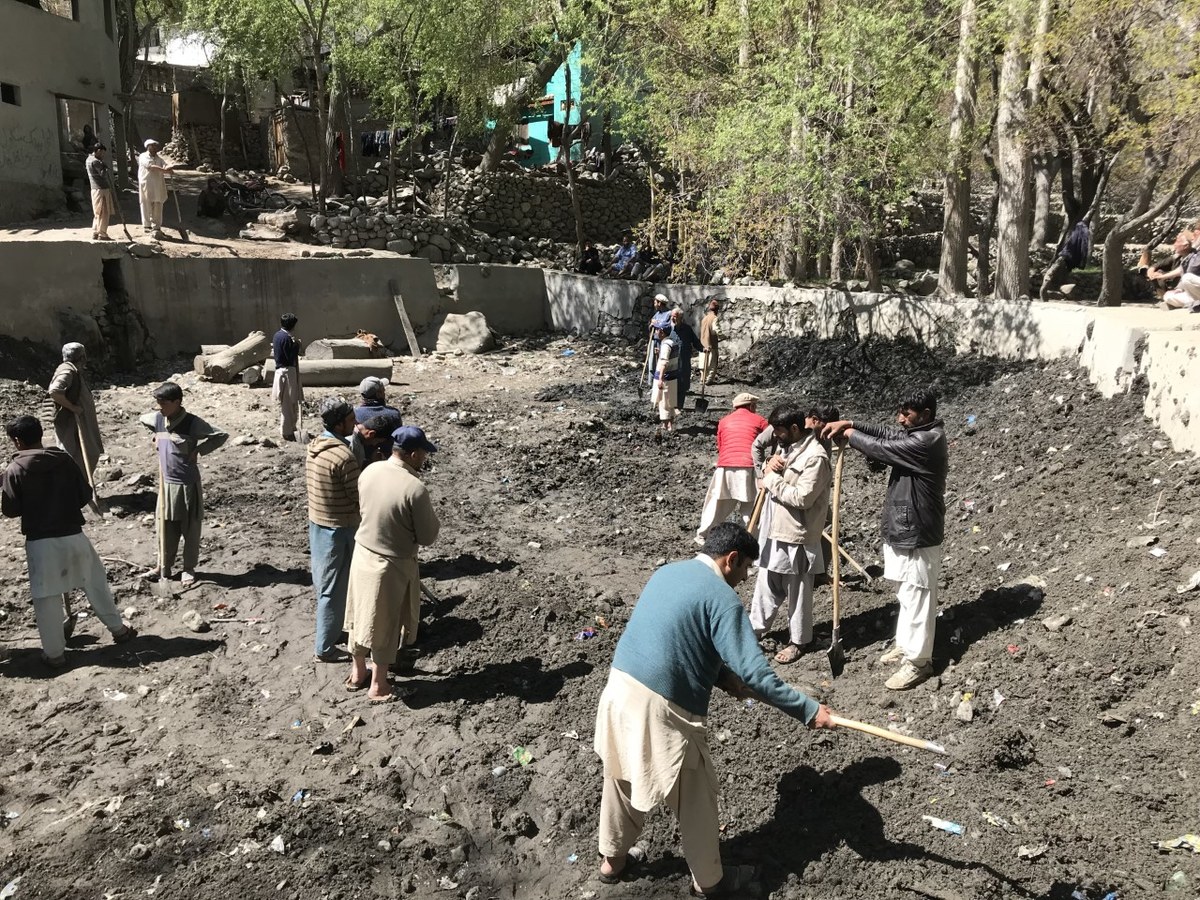
Villagers clean a water channel in Khaplu Valley of Gilgit-Baltistan, Pakistan, on May 7, 2022 (AN Photo)
“When the committee members sit and decide the day for the cleaning drive, we summon the people through an announcement through the loudspeaker of the mosque in the morning. This year we dedicated May 7 for the drive,” Jamil said.. “We must ensure the attendance of every household and if anyone is found missing we impose fines on them.”
“This is a centuries-old practice and we are just following the way of our ancestors,” he added, saying the cleaning drive took place across villages in Gilgit-Baltistan.
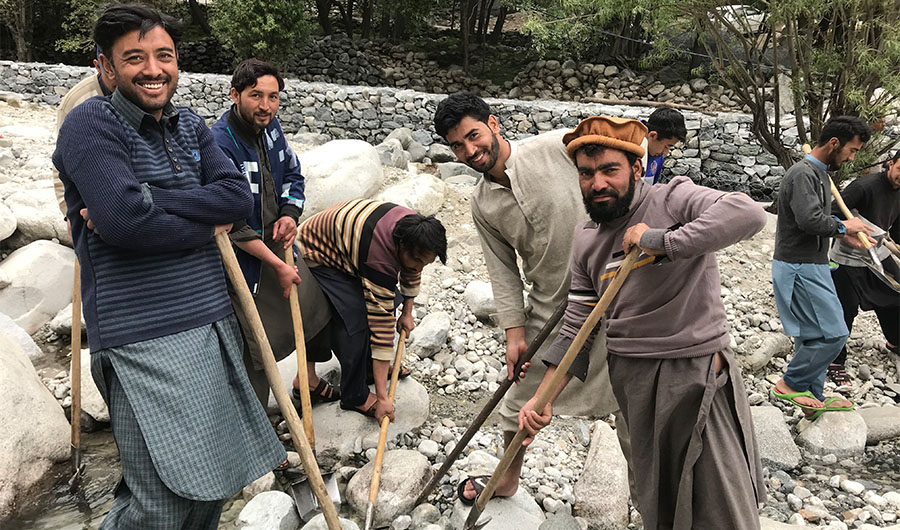
Villagers clean a water channel in Khaplu Valley of Gilgit-Baltistan, Pakistan, on May 7, 2022 (AN Photo)
“Cleaning drives of water channels and reservoirs take place in every village of the valley where the main source of water for irrigation is glaciers and lakes instead of springs,” Nasrullah, a deputy director at the Department of Water Management and Irrigation, told Arab News.
“For the improvements of the water channels and reservoirs, we are making a water users association in every village. And the water management and irrigation department is supporting local communities for the rehabilitations and improvements of channels.”
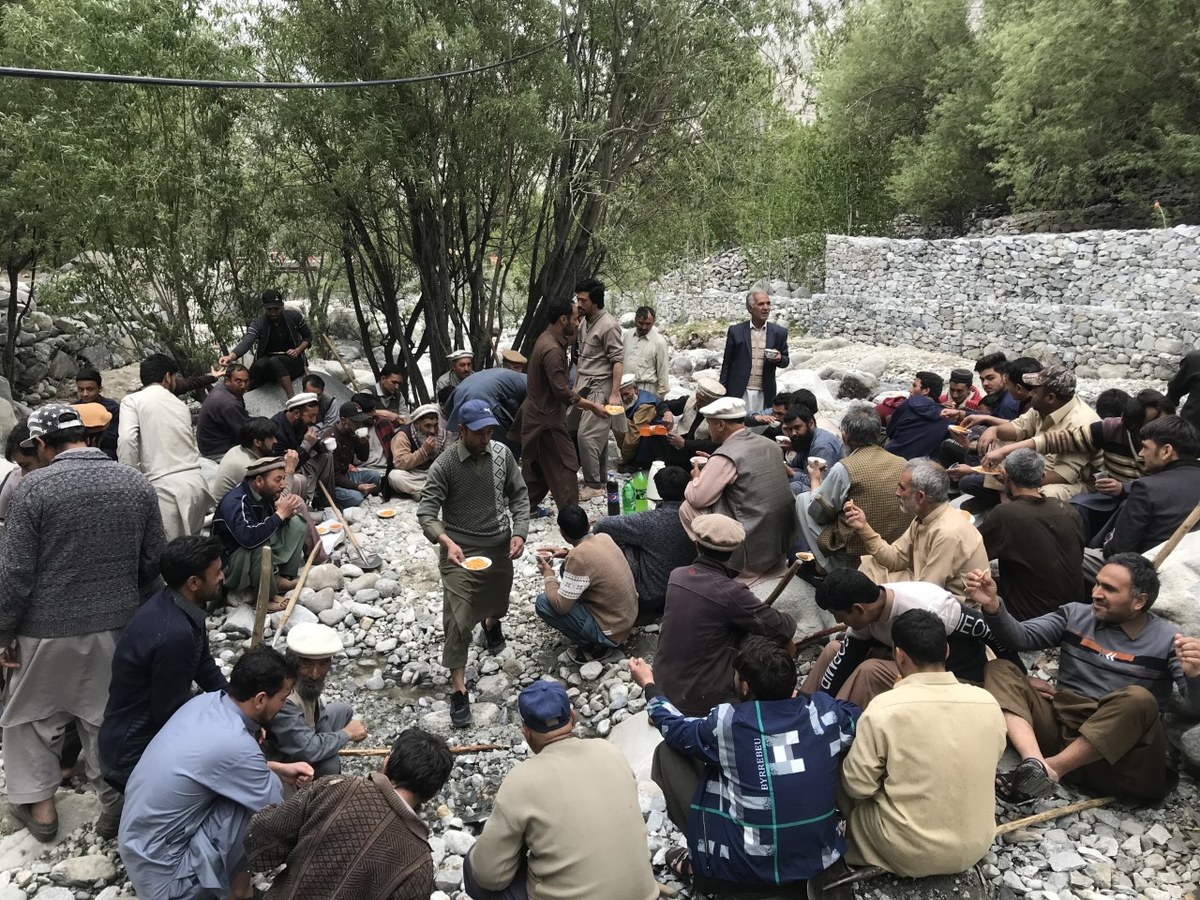
Villagers share refreshments during a water channel cleaning dive in Khaplu Valley of Gilgit-Baltistan, Pakistan, on May 7, 2022 (AN Photo)

















